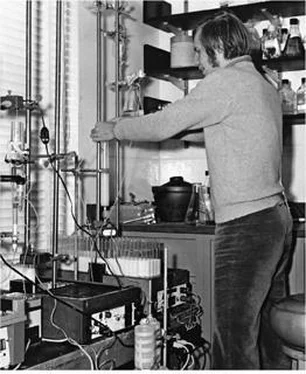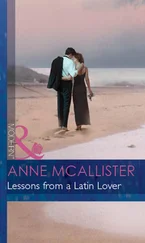James Watson - AVOID BORING PEOPLE - Lessons from a Life in Science
Здесь есть возможность читать онлайн «James Watson - AVOID BORING PEOPLE - Lessons from a Life in Science» весь текст электронной книги совершенно бесплатно (целиком полную версию без сокращений). В некоторых случаях можно слушать аудио, скачать через торрент в формате fb2 и присутствует краткое содержание. Жанр: Биографии и Мемуары. Описание произведения, (предисловие) а так же отзывы посетителей доступны на портале библиотеки ЛибКат.
- Название:AVOID BORING PEOPLE: Lessons from a Life in Science
- Автор:
- Жанр:
- Год:неизвестен
- ISBN:нет данных
- Рейтинг книги:5 / 5. Голосов: 1
-
Избранное:Добавить в избранное
- Отзывы:
-
Ваша оценка:
- 100
- 1
- 2
- 3
- 4
- 5
AVOID BORING PEOPLE: Lessons from a Life in Science: краткое содержание, описание и аннотация
Предлагаем к чтению аннотацию, описание, краткое содержание или предисловие (зависит от того, что написал сам автор книги «AVOID BORING PEOPLE: Lessons from a Life in Science»). Если вы не нашли необходимую информацию о книге — напишите в комментариях, мы постараемся отыскать её.
AVOID BORING PEOPLE: Lessons from a Life in Science — читать онлайн бесплатно полную книгу (весь текст) целиком
Ниже представлен текст книги, разбитый по страницам. Система сохранения места последней прочитанной страницы, позволяет с удобством читать онлайн бесплатно книгу «AVOID BORING PEOPLE: Lessons from a Life in Science», без необходимости каждый раз заново искать на чём Вы остановились. Поставьте закладку, и сможете в любой момент перейти на страницу, на которой закончили чтение.
Интервал:
Закладка:
From a Warsaw, Indiana, podiatrist came advice that all disease results from two simple but pervasive problems—fatigue and respiratory imbalance. Through his research he had learned that these two root pathologies were themselves founded in abnormal foot mechanics and gait. He had treated many people who never caught cold because of therapeutic restoration of normal walking mechanics. Among the beneficiaries of the treatment course, which typically ran three to four years, was the correspondent himself. Another revolutionary way to stop colds was suggested by a New Mexico man of Scottish descent who had noted that the main characters in John Buchan's
novels The Thirty-Nine Steps and John Macnab never even sniffled. This immunity the New Mexico man attributed to strenuous workdays in the cold, fog, and rain.More poignant, but strange nonetheless, was a letter from a seventeen-year-old Samoan girl in Pago Pago who, after thanking the Lord for his love and kindness, introduced herself as Vaisima T. W. Watson. She hoped that I was related to her father, Thomas Willis Watson, a U.S. Marine supply sergeant during World War II. Her mother had never heard from him following his return to the States. In my reply, I pointed out that Watson was a common name, with hundreds of entries in the Boston phone book alone.
Soon the itinerary of my forthcoming Nobel week, in broad outline at least, was sent to me from Stockholm. I would be housed in the Grand Hotel with my guests. My personal expenses there would be paid by the Nobel Foundation, which would also cover the food and lodging of a wife and any children. As getting there would be my responsibility, the Nobel Foundation would advance some of my prize money for airfare. The prize presentations were to take place at the Stockholm concert hall according to custom on December 10, the date on which Alfred Nobel died in San Remo, Italy, in 1896 at the age of sixty-three. I was expected to arrive several days earlier for two receptions, the first given by the Karolinska Institutet for its winners, and the second by the Nobel Foundation for all laureates except for those in Peace, who always receive their prizes in Oslo from the Norwegian king. At the prize ceremony and at the banquet the following night at the Royal Palace, I was to be dressed in white tie and tails. Meeting me at the airport was to be a junior member of the Foreign Ministry, who would accompany me to all official functions and see me off at my departure.
Making it an even more meaningful occasion was the awarding of the year's chemistry prize to John Kendrew and Max Perutz for their respective elucidations of the three-dimensional structures of the proteins myoglobin and hemoglobin. Never before in Nobel history had one year's prizes in biology and chemistry gone to scientists working in the same university laboratory. The announcement of John and Max's prize came several days after ours was announced, on the same
day the physics prize was awarded to the Russian theoretical physicist Lev Landau for his pioneering studies on liquid helium. Unfortunately, because of a ghastly automobile crash that had recently caused him severe brain damage, he would not be joining us in Stockholm. After the double helix was found, the Russian-born physicist George Gamow had much raised my ego by saying that I reminded him of the young Landau. Last to be announced was the literature prize, awarded to the novelist John Steinbeck, who was to deliver his Nobel address at the large banquet in the Stockholm city hall following the prize ceremonies.In the long letter detailing how to prepare for Stockholm, I was informed that appropriate accommodations would also be reserved for special research assistants. If I could tactfully bring along my lab assistant of the past summer, the Radcliffe junior Pat Collinge, the occasion would be even more decorative. Her fey urchin manners, together with her intense, catlike blue eyes, were likely to have no equal in Stockholm. Alas, she now had a Harvard undergraduate boyfriend of literary aspirations, whom I was unlikely to supplant. Pat promised, however, to help me master the waltz steps that I would need for the customary first dance following John Steinbeck's speech.
For several days, I eagerly anticipated a November 1 state dinner at the White House to which I received a last-minute invitation. Though the event was intended to honor the grand duchess of Luxembourg, I was more keen to see America's royal couple in action. Only six months had passed since they had elegantly honored the nation's 1961 Nobel Prize winners, so I now thought the occasion might find me seated beside Jackie. All such thoughts, however, were abruptly interrupted by the Cuban missile crisis. JFK's speech to the nation on Monday, October 20, was not one to be listened to alone. Nervously, I went to the Doty home to watch it on their relatively big TV screen. Even before the speech was over I knew the gravity of the situation was such that a politically unnecessary state dinner was bound to be cancelled. From then on the president's attention would necessarily be focused on whether the Soviets would challenge the American blockade of Cuba, in which case the prospect of nuclear war seemed very real indeed.
Over the next several days, I had to wonder whether a month hence
I would, in fact, be going to Stockholm. The Soviets might very well set up their own blockade of Berlin. Happily, less than a week passed before Nikita Khrushchev backed down. By then it was too late to reschedule the dinner for the grand duchess. The White House, however, kept me in view and invited me to a December luncheon for the president of Chile. But the thrill that came of seeing the White House envelope vanished when I opened it and saw that the date overlapped with Nobel week. I continued hoping that there might be a place for me at still another White House affair. But by the new calendar year I was no longer a celebrity of the moment.A postcard from Berkeley brought me some unexpected happiness. It was from my former Radcliffe friend Fifi Morris, who five years before had become quite angry with me over a fondness I developed for her roommate. Equally unexpected was a letter originating in Chicago from Margot Schutt, whose acquaintance I made aboard a ship headed back to England in late August 1953. After graduating from Vassar, she had moved to Boston at the same time I came to Harvard. We had briefly dated in early 1957, until one day when she abruptly hinted that I was not a good enough reason for her to remain in Boston by announcing she would be setting off for London. Now she lived in Chicago and had read that I was scheduled soon to visit the University of Chicago.
The Chicago trip had been arranged some months before the Nobel Prize announcement. Suddenly it became a media event, with visits to my former grammar school and high school hastily arranged. Also making a return visit to Horace Mann Grammar School that day was Greta Brown, the principal when I was there between the ages of five and thirteen. Earlier she had penned me a warm letter recalling my bird-watching days and regretting that my very well-liked mother had not lived to enjoy my triumph. The school auditorium was crammed as I spoke from the stage, gazing once again upon its handsome big WPA murals. The next day, in the Chicago Daily News a nearly whole-page spread was headlined “The Return of a Hero” and quoted a teacher remembering me as “very short in stature but with a very eager mind.” Later at South Shore High School I spoke to an even larger
audience including my former biology teacher, Dorothy Lee, who much encouraged me during my sophomore year.At the University of Chicago, my new fame caused my scheduled lecture to be relocated to the large law school auditorium. Later I went for dinner to the Hyde Park home of a friend from my phage past, the University of Chicago biochemist Lloyd Kosloff. The next afternoon, I was at the ABC television studios for an afternoon taping of Irv Kupcinet's show. A real Chicago celebrity owing to his Sun-Times daily gossip column, Kup also hosted a three-hour talk show on which that day I shared billing with the authors Leo Rosten and Vance Packard.
Читать дальшеИнтервал:
Закладка:
Похожие книги на «AVOID BORING PEOPLE: Lessons from a Life in Science»
Представляем Вашему вниманию похожие книги на «AVOID BORING PEOPLE: Lessons from a Life in Science» списком для выбора. Мы отобрали схожую по названию и смыслу литературу в надежде предоставить читателям больше вариантов отыскать новые, интересные, ещё непрочитанные произведения.
Обсуждение, отзывы о книге «AVOID BORING PEOPLE: Lessons from a Life in Science» и просто собственные мнения читателей. Оставьте ваши комментарии, напишите, что Вы думаете о произведении, его смысле или главных героях. Укажите что конкретно понравилось, а что нет, и почему Вы так считаете.












